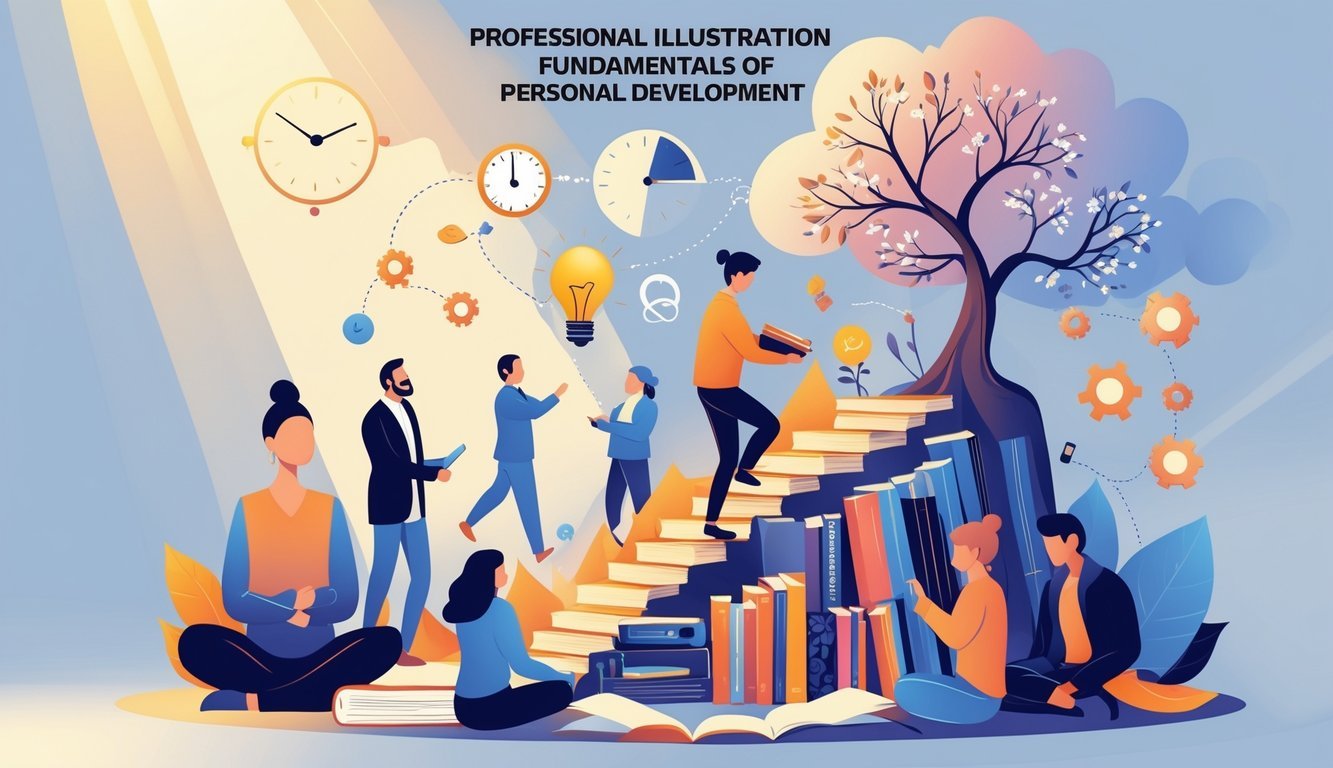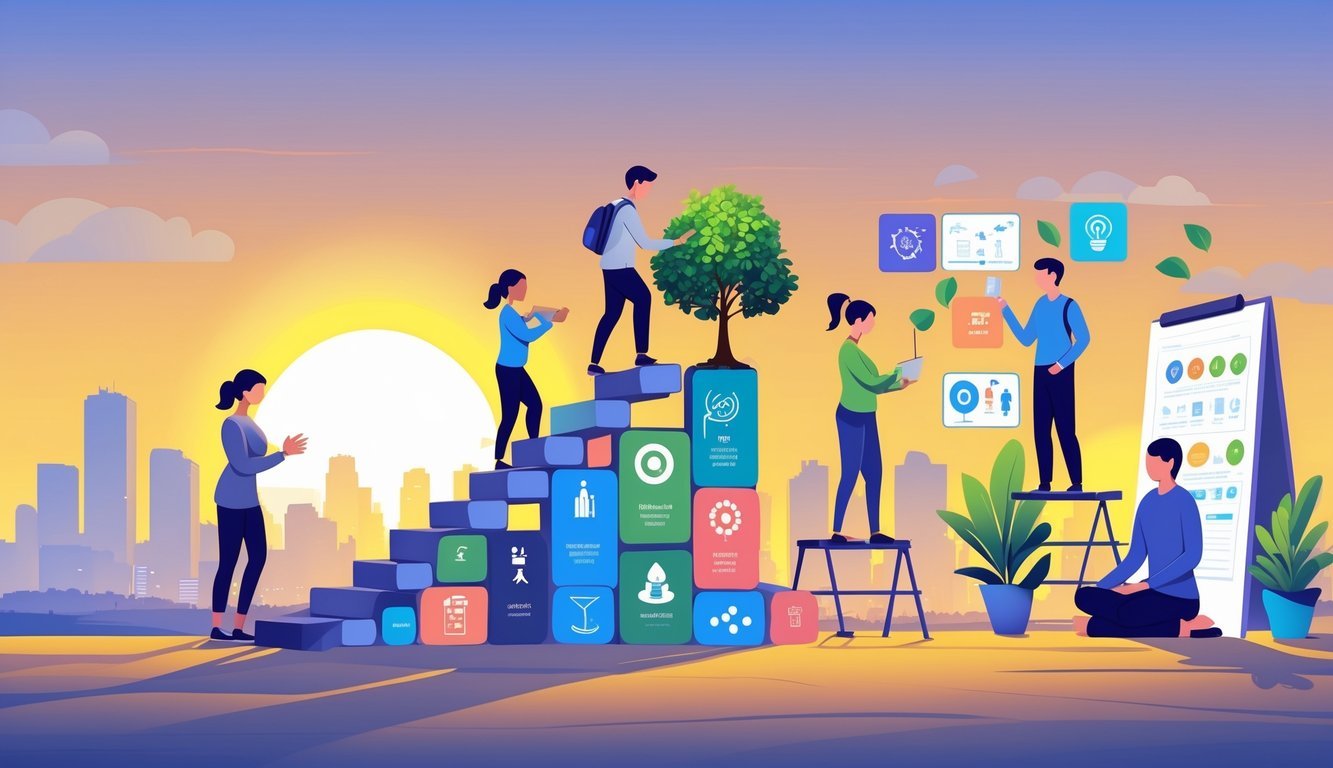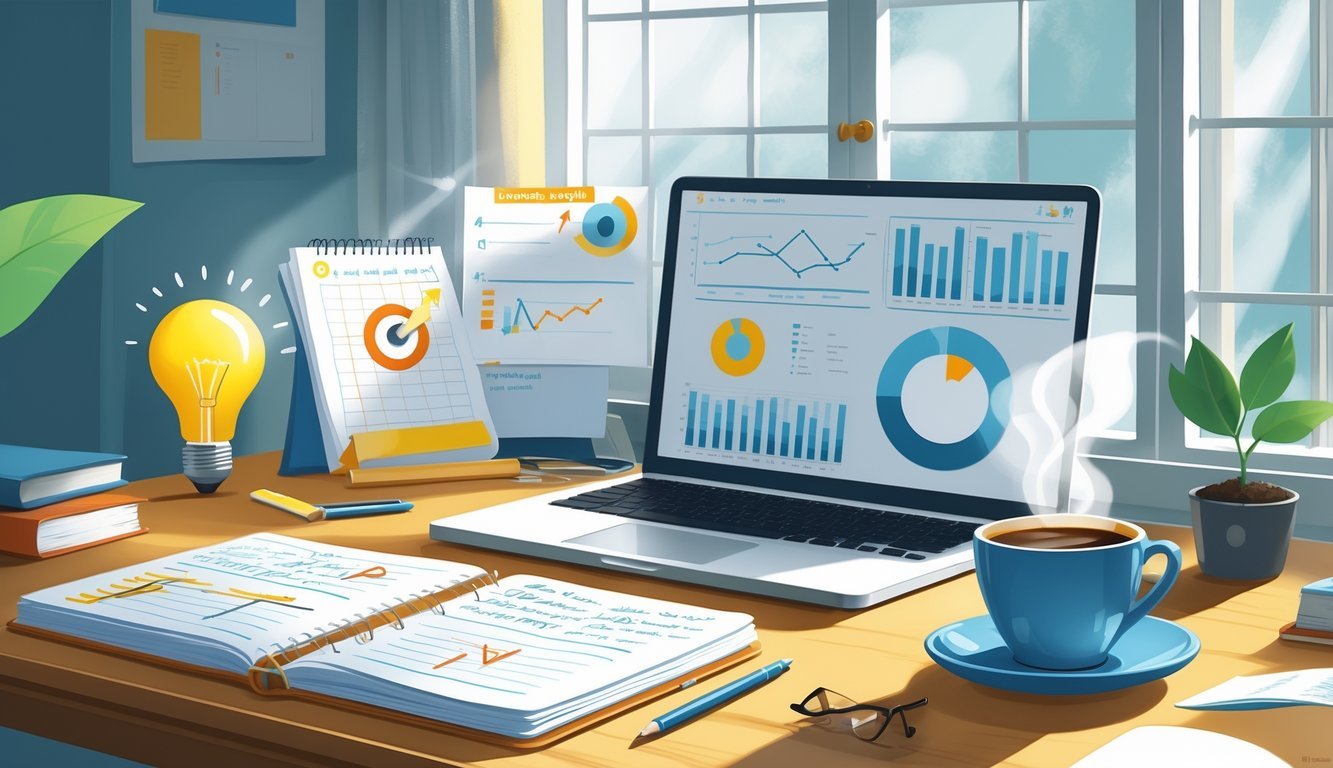PsychNewsDaily Publishers
100 Summit Drive
Burlington, MA, 01803
Telephone: (320) 349-2484
PsychNewsDaily Publishers
100 Summit Drive
Burlington, MA, 01803
Telephone: (320) 349-2484
Personal development involves enhancing skills, understanding strengths and weaknesses, setting clear goals, and fostering self-awareness for lifelong growth and improved well-being in various life areas.

Personal development is about making yourself better—learning new skills, figuring out your strengths, and, honestly, facing your weaknesses. When you set clear goals and work toward them, you give yourself a real shot at improving your life. Personal development hands you the tools you need to grow and reach your potential.
If you focus on personal development, you start noticing more about yourself and gain better control over your actions and choices. This awareness can improve your relationships, your career, and honestly, your overall happiness.
It’s a lifelong thing, not a quick fix. You keep adapting and finding ways to thrive in different parts of life.
When you learn how to set and actually achieve goals, you can see steady progress and real change. Personal development isn’t only about big wins; it’s more about small steps that add up over time and give you lasting improvements.

To grow, you need to know what drives you, how you see yourself, and what mindset actually helps you get where you want to go. When you really understand who you are and what you value, building confidence and recognizing your potential feels a lot more doable.
Personal development means you work on your skills, habits, and thoughts to make your life better. You keep learning about your strengths and weaknesses, which helps you set meaningful goals and build better habits.
It’s not just about learning new stuff, though. You make real changes in how you think and act. You decide which parts of yourself you want to work on, so your growth fits your life and what matters to you.
Your core values are at the heart of personal development. They’re the beliefs and ideas that matter most to you.
When you know your values, you can make choices that truly fit what you want.
Self-awareness is about understanding your own traits, habits, and emotions. If you know how your thoughts and behaviors affect your life, you can start making better decisions.
Try reflecting on your actions and feelings regularly to build self-awareness. This helps you keep your goals and values in sight, and it usually makes it easier to understand others, too.
A growth mindset is believing you can get better with effort. When you have this mindset, you see challenges as chances to learn instead of just problems.
You focus on what you can do to develop your potential, even if it means making mistakes. Mistakes become learning opportunities, and you stay open to new ideas.
Your potential grows when you take small, steady steps toward your goals. Having a growth mindset lets you unlock parts of yourself you might not have noticed before.
Confidence comes from trusting yourself and your abilities. Self-esteem is about how much you value yourself.
Both matter a lot for building a strong personal identity.
Your identity is basically a mix of your traits, values, and beliefs. It shapes how you see yourself and how others see you.
If you want to boost confidence and self-esteem, pay attention to your achievements and the qualities you like about yourself. Try not to be too hard on yourself, and get to know your ego without letting it run the show. This balance helps you grow with some kindness toward yourself.

If you want real progress, set clear, practical goals and stick to a plan. You’ll need to stay motivated, deal with obstacles, and keep learning new skills along the way.
Focusing on specific actions makes it easier to improve and build resilience when things get tough.
When you set goals, make them SMART: Specific, Measurable, Achievable, Relevant, and Time-bound. Define what you want, figure out how you’ll measure success, and make sure it’s realistic for you.
Instead of saying, “I want to get better at public speaking,” try something like, “I’ll practice public speaking for 30 minutes twice a week for the next three months.”
Writing your goals this way keeps you focused and lets you track your progress. Breaking big goals into smaller steps also makes them less overwhelming.
A Personal Development Plan (PDP) helps you organize your goals and the steps you’ll take. In your plan, write down what you want to achieve, the actions you’ll take, and set some deadlines.
Keep your plan flexible. You might need to adjust it as you learn more about yourself and what works for you.
Review your progress regularly to see what’s going well and what needs tweaking. Using a PDP can keep you motivated, since you’ll see your growth and remember to celebrate small wins along the way.
You’ll hit challenges and setbacks—it’s just part of the process. When obstacles pop up, stay adaptable and do your best to keep a positive mindset.
Resilience means learning from mistakes and finding ways to bounce back. Treat problems as chances to get better at decision-making and solving problems.
Hard work doesn’t always mean smooth sailing. Sometimes, you need to accept your weak spots, ask for help, or try a different approach. That way, you avoid frustration and keep moving forward.
Personal development relies on ongoing learning and building new skills. Whether you’re working on communication, critical thinking, or just staying curious, it all helps.
You can build personal skills through education, practice, and real-life experience. Set goals for both short-term skill-building and long-term knowledge growth—it’ll support your bigger vision.
Keep learning by reading, taking courses, or asking for feedback. This kind of continuous improvement sharpens your abilities and makes it easier to adapt and succeed.

You’ll find ways to plan your growth, pick helpful books, and choose courses that actually fit your needs. There are also practical activities to try, reasons why personal development matters, and how coaching or mentoring can support you.
Start with clear, specific goals that match what you want to improve. Break your goals into small, doable steps and set deadlines for each one.
Track your progress and change your plan if something’s not working. Make sure your plan covers different areas—skills, habits, and mindset.
Books like Atomic Habits by James Clear and The 7 Habits of Highly Effective People by Stephen Covey are solid picks. They focus on building good habits and improving your mindset.
Look for books that match your own goals, whether that’s communication, confidence, or productivity.
Online platforms like Coursera, Udemy, and LinkedIn Learning offer tons of courses. Search for topics like time management, emotional intelligence, or leadership.
Pick courses with good reviews and practical lessons that fit how you like to learn.
Try journaling your thoughts each day to boost self-awareness. Set small challenges, like waking up a bit earlier or reading for 15 minutes daily.
Mindfulness exercises and asking for feedback from friends or coworkers can help, too.
It helps you get to know yourself and improve your skills, which leads to better decisions, stronger relationships, and more confidence.
Growing personally also gets you ready for new opportunities or challenges.
Coaching keeps you focused on your goals. It helps you figure out how to get past obstacles.
Mentors offer advice and share their own experiences. They guide you as you grow.
Both coaching and mentoring give you support and feedback. You’ll probably find a boost of motivation along the way, too.